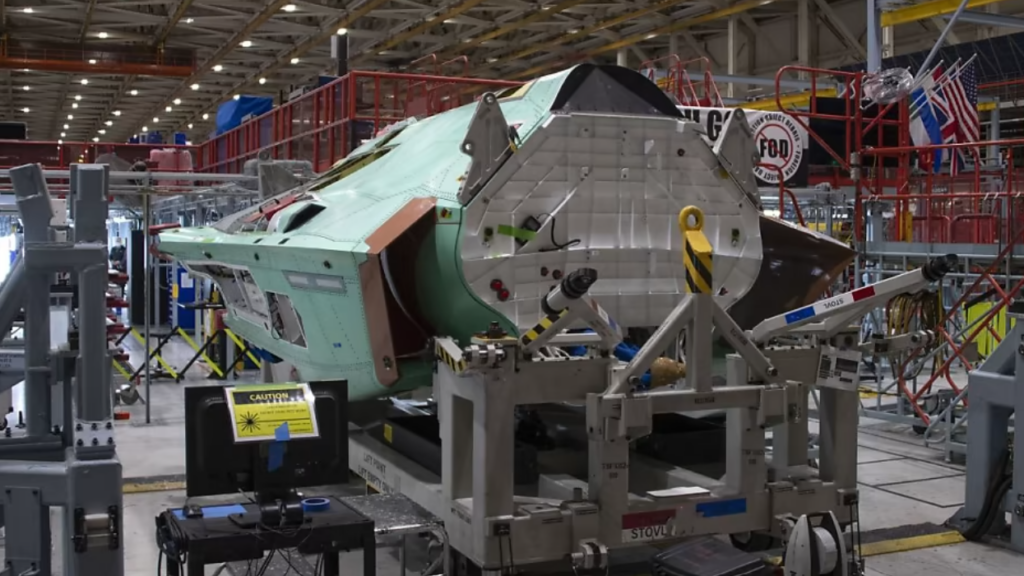Rheinmetall Announces Plans for F-35 Fuselage Factory in Germany
German arms company Rheinmetall announced last Tuesday, 4 July, their intentions to build a “state-of-the-art” F-35 fuselage factory in the Lower Rhine municipality of Weeze, Germany. This project is to be a partnership between Rheinmetall and American companies Lockheed Martin and Northrop Grumman.
Rheinmetall plans to employ 400 skilled workers at the 60,000 square meter facility, furthermore expecting “at least 400 fuselage sections to be produced starting in 2025.” In addition, the plant will include logistics, research, warehouse, testing, classrooms, and quality control facilities. Specifically, it will produce fuselage sections for the F-35A Lightning II multirole combat aircraft.
Mike Shoemaker, vice president of the F-35 program at Lockheed Martin said “We are pleased with Rheinmetall’s swift site selection for the upcoming F-35 center fuselage production facility,” noting that it “marks an important milestone in the German F-35 program – this increase in capacity helps meet the growing global demand that further enables the F-35 to stay ahead of evolving threats in the 21st century landscape.” While Glenn Masukawa, Northrop Grumman vice president for the F-35 program commented that “Northrop Grumman will replicate our automated and manufacturing technologies of the integrated assembly line in Weeze. Combined with Rheinmetall’s capabilities, our collaboration with Lockheed Martin to manufacture the centre fuselage is critical in bolstering global security.”
The facility will play an integral role in arming and maintaining Europe’s arsenal of advanced F-35A combat aircraft. Furthermore, it is undeniable that the facility will be key in the Bundeswehr rearmament project which has emerged since the start of the war in Ukraine. Rheinmetall CEO Armin Papperger iterated that the company is “proud that our longstanding partnership with Northrop Grumman and Lockheed Martin and our decades-long relationship with the Bundeswehr is resulting in a genuine transfer of know-how to Germany.”

